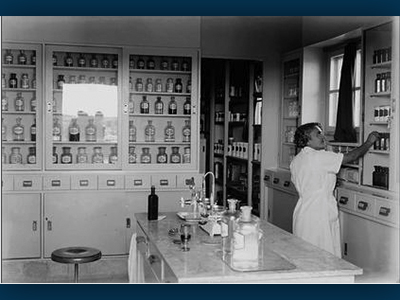December 18, 1911
At the Second Convention of the Judea Agricultural Workers’ Federation in Petah Tikvah, a resolution is passed by the 150 workers present stating, “The convention recognizes the necessity of creating a health fund through membership dues of workers in Eretz Israel.”
In the early years of the Yishuv, immigrants to the Land of Israel found mostly deplorable health conditions that were exacerbated by malaria-infested swamps, a lack of plumbing and running water, and virtually no health care facilities. These conditions, as well as a growing number of accidents among Jewish workers, motivated the establishment of workers health care federations to protect their interests. Among the first order of business of these worker groups was to address medical aid and assistance.
At the urging of Berl Katznelson, the special convention is convened in December 1911 to address the issue of health care for immigrant workers. After the proposal is passed, creating Kupat Holim Clalit (General Sick Fund), Katznelson proposes that newly established health funds rest on the collective savings of the members and be based on the principle of mutual guarantees and mutual aid. Contributions are made according to income.
In 1920, Kupat Holim Clalit is taken over by the newly established Histadrut. Other health insurance funds are established later. By the end of 1948, 80% of those who have health insurance in the new state (53% of the population) are covered by Kupat Holim Clalit. The fund increases in size and scope to meet the needs of Israel’s rapidly expanding population of immigrants.
Today, when all citizens of Israel have universal health insurance, the successor organization, Clalit Health Services, is the largest health provider in Israel, covering 60% of the population. It runs 14 hospitals and more than 1,200 clinics.










